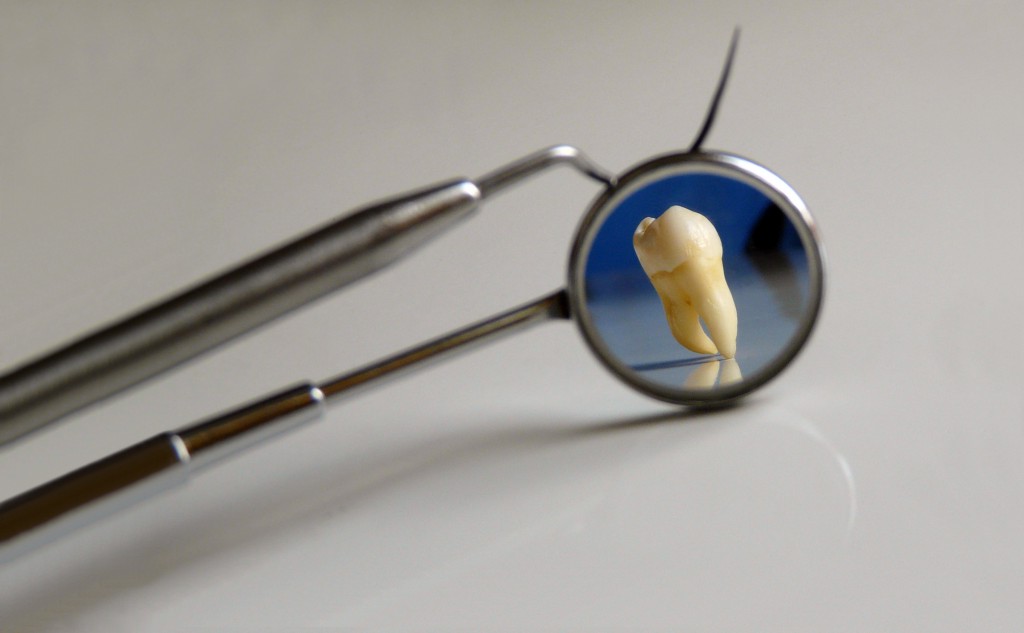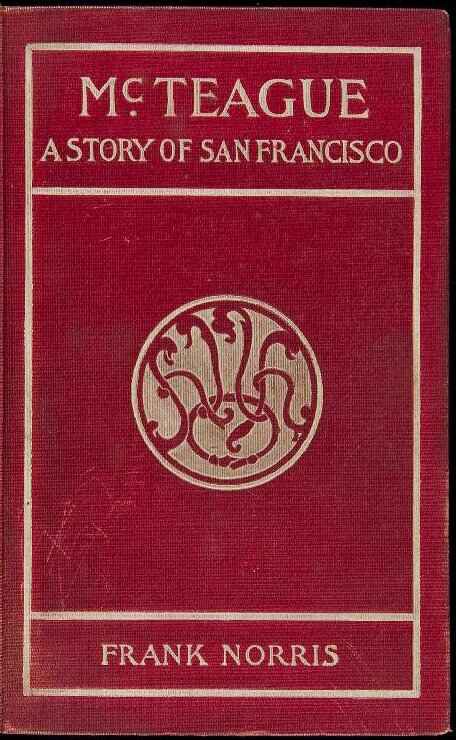Parenting by the Books: McTeague
On teeth and parenting failures

It is a truth universally acknowledged, that a woman in possession of a parenting column must be in want of judgment on her parenting. So here we go: I can only remember maybe two times in the last six months when my kids, ages five and three, brushed their teeth. Maybe there was one other time, when they stayed over at my parents’ house? I’m not sure. Once, when my first son was around six months old, and I was dutifully rubbing his few teeth with some bristles, I posted on Facebook: “I can’t believe I’m supposed to do this every night until he can hold his own toothbrush!” Someone commented something like “Yep! Even longer; seven-year-olds are really bad at getting their molars clean.” In the face of this absurd information about the next decade of my life, I put the toothbrush down, and have rarely picked it up since. Whoops. They’re just going to fall out anyway, right?

I was recently thinking about my failure to deal with my kids’ teeth and remembered Frank Norris’s bizarre 1899 novel McTeague. Have you read it? It involves a lot of teeth. The titular character is an unlicensed dentist from a poor family in San Francisco. His friend Marcus brings a very pretty young woman, Trina, with a very dead tooth into his office one day. After some light dental surgery, Trina and McTeague get married (duh). Their story from there is a classic naturalist devolution: marriage is not domesticating for either and they slowly revert to semi-primitive states. Trina is a terrible housekeeper and hoards resources (another major plot point is that she wins the lottery, but refuses to give McTeague any of her winnings), and McTeague takes up biting at her in response. Eventually McTeague kills her and the novel ends with Marcus and McTeague fighting in the middle of Death Valley. McTeague “wins” but just before he dies, Marcus handcuffs himself to McTeague, leaving our scary dentist friend stranded in the desert, attached to a corpse.
So! My kids’ teeth!
Just kidding, I can barely bring myself to pay attention to their teeth. But it occurs to me that the teeth in McTeague illustrate not just the naturalist novel’s “plot of decline” but also parenting’s plots of failure. Literary critic Philip Fisher describes naturalism’s fatalism also as “plots of exhaustion. . . that revolve around strength and weakness, not good and evil.” In other words, human life is a war of attrition, a series of small scale actions that wear us down. Peek inside a home with children around 8 or 9 p.m. at night and you can see these plots of exhaustion unspooling. Who has the energy? If only we could all agree that none of us does and mostly what we’re going to do is fail!
Naturalism can be a refreshing genre through which to think about parenting; I’d say we still mostly push our ideas about parenting through sentimentalism’s sieve (e.g., “Having a baby changes everything”). But naturalism isn’t interested in sentiment or morality, it’s fundamentally attuned to the body and its biological messiness, and how human life is marked by unequal access to natural, financial, and emotional resources. So what if naturalism is bereft of hope or belief in merit? It’s perfect ballast for our inflated era of childrearing, in which every minute of the day seems to involve a Decision or a Theory that we’re meant to think is meaningful or essential to our children’s fundamental well-being. How bracing it can be to remind ourselves that none of it is really all that important.
In McTeague’s naturalist tale, the teeth gather layers of meaning across the progress of the novel: they are primitive weapons (there is so! much! biting! in the novel, it’s completely bizarre), sensitive parts of the vulnerable body, and symbolic of class aspiration and value. In our house, we’ve tried not to let teeth gather quite so much meaning. When we went through the early toddler biting stage, rather than prohibit the behavior we designated household items he could bite: a pillow, his stuffed animals, his lovey. And as the kids continue to grow, I realize I’ve been approaching my kids’ teeth as the ultimate do-over. They fall out! It’ll be a chance to start fresh!
Speaking of do-overs, the rare piece of parenting handbook advice I’ve recently taken to manage my five-year-old’s increasingly imaginable fits of anger (like, just so different from the bemusingly absurd quality of a two-year-old’s tantrums!) is the concept of the “do-over.” When we get into it over something — not listening, not treating his brother kindly, wanting something he can’t have, whatever — and have on one side me thinking that if I don’t hold my line of appropriate behavior he’s sure to rapidly transform into an opiate addict, him thinking if he doesn’t hold his line he will surely perish from his overwhelming feelings of dissatisfaction: we call DO-OVER!
I suppose here is where parenting’s plots of failure diverge from Norris’s naturalist vision. We actually don’t have to perish out there in Death Valley, chained to the corpse of our own failures. Because not every daily Decision that we make is really all that important, we can fail and fail over and over again. A house fortified with love against an indifferent world will always provide an opportunity for a do-over. We’re all just milk teeth: temporary and replaceable, in development, a little bit gross and horrifying, and also, corny as it sounds, pretty damn magical. But I do apologize for whatever teeth-based nightmares you have tonight.
“Parenting by the Books” is a series about parenting and classic literary texts.
Sarah Blackwood is editor and co-founder of Avidly and associate professor of English at Pace University.